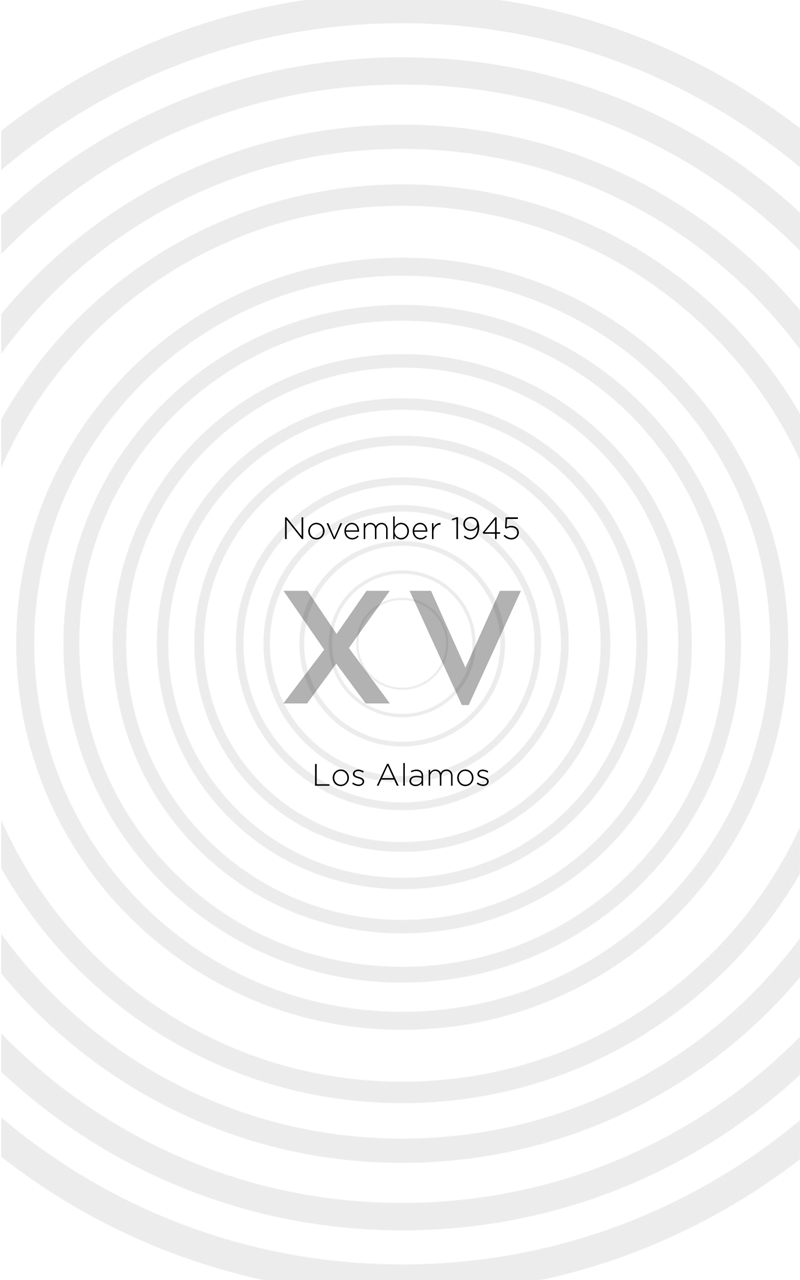
He is leaving Los Alamos, but the plateau and its surrounding canyons go on as they always have, the wilderness edging right up to the compound’s fences, through the cement around the expandable trailers and common latrines, through the new pavement of the roads, intruding into the flower beds around the downtown homes, seeping into the banks and water of Ashley Pond, into every place, everywhere, everyone. He thinks that the wilderness remains, especially now that the labs are empty, and all the footprints in the thin snow lead to the auditorium where he is giving his farewell speech, saying goodbye.
‘There was, in the first place, the great concern that our enemy might develop these weapons before we did, and the feeling, at least in the early days, the very strong feeling, that without atomic weapons it might be very difficult, it might be an impossible, it might be an incredibly long thing to win the war.
For a warrior, there is nothing better
than a battle that duty enjoins
‘These things wore off a little as it became clear that the war would be won in any case. Some people, I think, were motivated by curiosity, and rightly so
So rolls the wheel; and he on earth
Who does not help it roll,
has damaged the working of the world
‘and some by a sense of adventure, and rightly so. Others had more political arguments and said, “Well, we know that atomic weapons are in principle possible, and it is not right that the threat of their unrealized possibility should hang over the world. It is right that the world should know what can be done in their field and deal with it.”
The soldier’s native duty is
To stand his ground in fight,
And valiant, brilliant, generous, firm,
Deft exercise of might
‘And there was finally, and I think rightly, the feeling that there was probably no place in the world where the development of atomic weapons would have a better chance of leading to a reasonable solution, and a smaller chance of leading to disaster, than within the United States.
Whatever a great man does
ordinary people will do
‘I believe all these things that people said, and I think I said them all myself at one time or another.
Our task is treble, to pray, bear, and do
‘But when you come right down to it, the reason that we did this job is because it was an organic necessity. If you are a scientist you cannot stop such a thing.’
He is in memory as he speaks, in the wild and coming upon the boys’ school with Groves again, November 1942, the early snow and his breath blooming, that body, a state at a fulcrum, striving and failing to be one of the wise men who are fearless, one-pointed, and in the memory he wipes the ash from the tip of his cigarette with his finger, and he is admiring the future of the landscape, and Groves says, ‘This is the place,’ and he is both bodies and neither, and then he is speaking again:
‘There are others who try to escape the immediacy of this situation by saying that, after all, war has always been very terrible; after all, weapons have always gotten worse and worse; that this is just another weapon and it doesn’t create a great change; that they are not so bad; bombings have been bad in this war and this is not a change in that, it just adds a little to the effectiveness of bombing,’ and he is bathed again in Trinity’s unnatural blue light, ‘I think that these efforts to diffuse and weaken the nature of the crisis make it only more dangerous. I think it is for us to accept it as a very grave crisis, to realize that these atomic weapons which we have started to make are very terrible, that they involve a change, that they are not just a slight modification.’
As sin is nothing, let it nowhere be
He ends his farewell speech by pausing often, between California and New Mexico, between New York apartments, and he is talking with Jean across a table in a Mexican restaurant, her laugh balanced by the dark of her eyes, and he is watching Kitty stand as she rides her horse, her hair reckless against the sierras, and all of these states swirl around and through him as he ends.
‘I think that we have no hope at all if we yield in our belief in the value of science, in the good that it can be to the world to know about reality, about nature, to attain a gradually greater and greater control of nature, to learn, to teach, to understand. I think that if we lose our faith in this we stop being scientists, we sell out our heritage, we lose what we have most of value for this time of crisis. But there is another thing: we are not only scientists; we are men, too.
These bodies come to an end;
But that vast embodied Self
Is ageless, fathomless, eternal
‘These are the strongest bonds in the world, stronger than those even that bind us to one another, these are the deepest bonds, that bind us to our fellow men.’